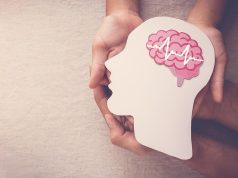30-Day Mortality Down During Joint Commission Survey Weeks
Patients admitted during survey weeks (versus non-survey weeks) have significantly lower mortality
Higher Risk of Death From Injury Among Individuals With Autism
Leading causes of death attributed to injury include suffocation, asphyxiation, and drowning
Vitamin E, Selenium Don’t Prevent Dementia in Older Men
No reduction in the incidence of dementia with supplements of vitamin E, selenium, or both
Pregabalin Doesn’t Cut Intensity of Sciatica-Linked Leg Pain
No significant difference in leg-pain intensity score at week eight or 52 for pregabalin, placebo
FDA Approves New Parkinson’s Add-On Drug Xadago
To help prevent 'off' episodes among users of levodopa/carbidopa
ω-3 Essential Fatty Acids May Protect Corneal Nerves in Dry Eye
Pilot study shows ω-3 EFA supplementation is neuroprotective in patients with dry eye disease
Black, Asian Medical Students Less Likely to Be AΩA Members
After adjustment, black, Asian medical students are less likely than white students to be AΩA members
Prenatal DHA Supplementation Doesn’t Increase IQ at Age 7
No between-group difference in measures of language, academic and executive functioning
New Device for Peripheral Nerve Stim Cuts Chronic Low Back Pain
Novel short-term PNS produced pain relief, reduced medication use in two patients with chronic LBP
Patients Have High Confidence in Self-Testing INR
Seventy-three percent of patients report being confident in adjusting their own warfarin level



















